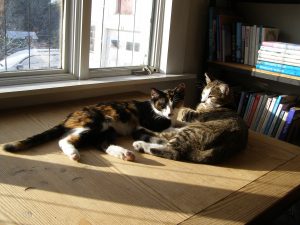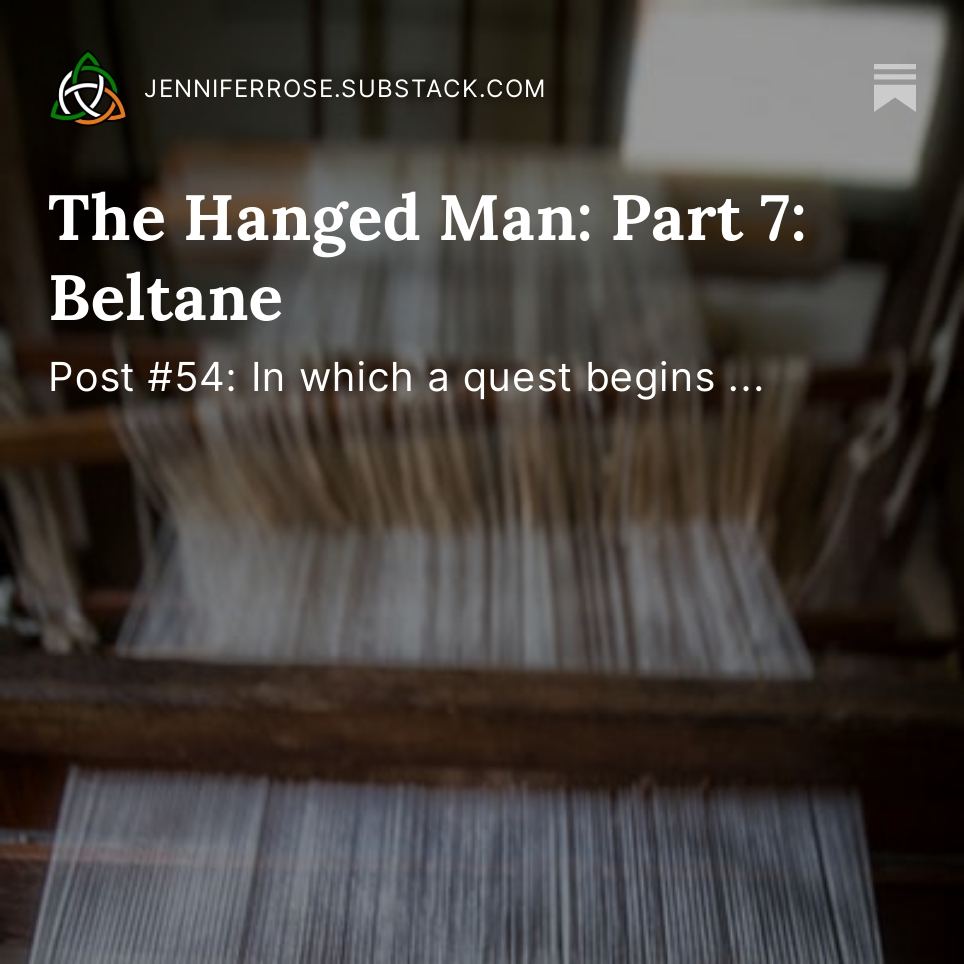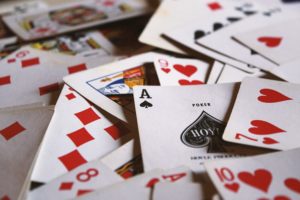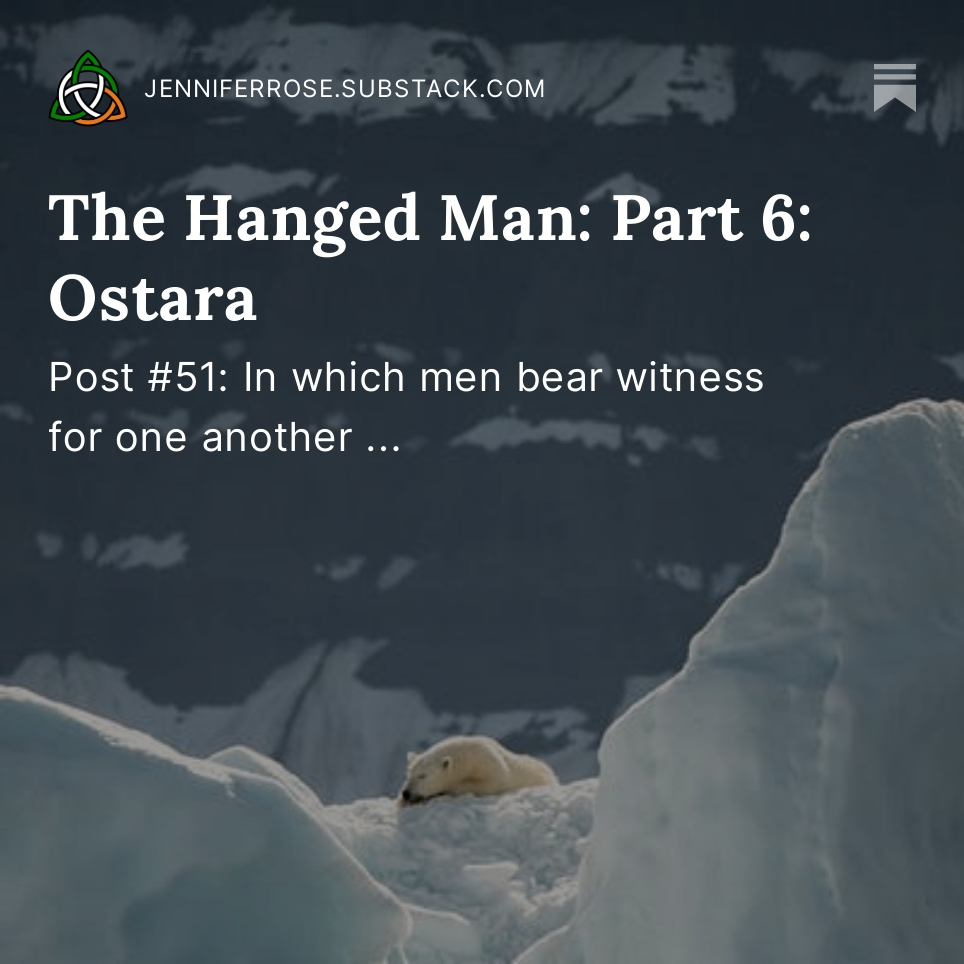by Jenny Rose | Jan 14, 2023 | A Flourishing Woman, The Journey
When I am struggling, I frequently find myself gifted with exactly the idea I need to help me step back, take a breath, and reframe. It always feels like a miraculous bit of synchronicity. When it happens I remember to have faith in myself, faith in the vagaries of life. I remember I can make choices, whatever the situation.

Photo by NASA on Unsplash
It happened this morning, unexpectedly, in a post I read by an astrologist I follow. This astrologist is unlike any I’ve ever read before. To begin with he’s intelligent, but not in a grifter, let-me-manipulate-you sort of way. His interpretation of astrology is interesting and provocative. I don’t read him to find out what color to wear today, but because his lens is so fascinating.
This morning began at 4:00 a.m. Which is better than yesterday morning, which began at 3:00 a.m. with me hunched over in bed scribbling yet another list. Really important stuff that had to be recorded at three in the morning. For example:
- E birthday card for friend (We share the same birthday this week; clearly this was an urgent reminder.)
- request time off (formally, I mean. My absence is already covered by a teammate. But I might forget I have to travel to Colorado to put my mom in a memory care unit next week, and if I don’t properly request time off in our software system the sky will fall, I’ll be fired, I’ll give my director and friend (see above) extra work and she’ll hate me, I won’t get paid …)
- tape measure (We are visiting the facility we hope to check Mom into before going to her house. How will we know what furnishings to bring for her? How will we know how much wall space there is? Clearly, I need to pack a tape measure, carry it on the bus, on the hotel shuttle, on the plane, in the rental car. There are no tape measures in Colorado.)
- soap dish (We have an informal lost and found at the rehab pool facility where I work. Mostly what gets found are toiletries in the locker room and showers; these are rarely claimed. I need a soap dish, and one is sitting in our lost and found waiting to be retrieved. If no one comes to get it, I want that soap dish. A very important detail that must not be forgotten, as plastic soap dishes are rare and valuable. Soap dish or sleep? … obviously, soap dish is more important.)
- waterproof mattress cover (Mom’s new room will not accommodate a queen bed, which is the only size she has. We have a twin bed for her, but she’ll need new sheets and bedding. I mustn’t forget to get a couple of waterproof mattress covers …)
- Etc.
But where was I?
Oh, right, the astrologer’s post about Mars and planets and friction.
Friction. Pressure. Oh, boy.
I confess I didn’t read the whole article with much attention, mostly because I don’t have much focused attention right now for anything, but this caught my eye:
Mars Positive: Courage and willpower applied consciously towards a specific goal.
Mars Negative: Impatience and misapplied force.
Misapplied force, anyone? I had to laugh.
At that point it was time to get up and make breakfast, so I put the laptop aside. While I cooked, washed my face, cleaned out the cat boxes, and watched the cold dawn light I thought about friction. Pressure. Birth. Transformation. I thought about polished rocks and pearls. I thought about diamonds and fossils and geologic forces and time. I thought about youth and plasticity and vitality, followed by old age, desiccation, brittle bones, weariness, atrophy.

Photo by Josh Howard on Unsplash
Friction can produce fire — cleansing, regenerative, alchemical fire.
I remembered life is full of friction and grit. Experience can smooth our edges, soften our rigidities and certainties, blur our idealism and mellow our arrogance.
I remembered, in short, I can choose to avoid and resist friction (and mostly I do), but sometimes the only way out is through.
This is one of those times. A camel-through-the-eye-of-the-needle time. A time when the right thing to do is the thing I most want to avoid doing. A time when I want to argue with reality. A time when I have chosen and am now resigned to everything that choice entails.
In exactly a week from the minutes I sit writing this draft I’ll be on a plane heading to Colorado to do an unthinkable thing: meet my brother and one of my sons and transition my mother to a locked memory care unit in a place she’s never been before with people she doesn’t know (not that it matters, as she no longer remembers the places or the people she has known) before getting on another plane to come back to my life in Maine.
Even as I write it, it doesn’t seem real.
I wish it wasn’t real.
For the first time this morning, though, while the new day dawned and the cats and I ate our respective breakfasts, I thought about the other side of this narrow tunnel, this birth canal. There will be another side. There always is. What is happening to me, and to the rest of my family? What is happening, locked away, invisible, irretrievable, in Mom’s experience? I’ve done hospice work, and I’ve witnessed how mysterious and beautiful the end of life can be. This event ripples out into the rest of my family system, sanding, smoothing, transforming. Friction is change. Pressure reshapes us. Can I relax, just a little? Can I let it happen the way it needs to? Can I be satisfied I’ve made the choices and decisions I’ve needed to and let my feelings wash me where they will? Can I surrender to the cars, the buses, the hotel shuttles, the planes, the journey, in fact?

Photo by Dan Gold on Unsplash
Could I set aside soap dishes and birthday cards, payroll issues, tape measures, waterproof mattress covers; the potential for delays, bad weather, mechanical breakdowns, crowds, jammed traffic, overstimulation, viruses, and the general unpredictability of life and people and trust there will be sleep, there will be food, there will be a bathroom, there will be a minute to sit down, there will be help, there will be tears, and I will figure out how to print my boarding pass at a kiosk in the airport?
Well, I could try, at least. I’m willing to try.
There is friction, and friction is magical.
I’m publishing two weekends in a row right after I said I was moving to biweekly posting. But then the trip to Colorado was upon me, which is the weekend I’m scheduled to publish. So I’ll write again on the other side of all this friction. Maybe by then I’ll be a pearl. Or write pearls of wisdom?
Questons:
- What’s the biggest source of friction in your life? What is it shaping you into?
- What wakes you up at 3:00 in the morning?
- Do you avoid friction or welcome it?
- What helps you lubricate life’s friction?
Leave a comment below!
To read my fiction, serially published free every week, go here:
by Jenny Rose | Jan 7, 2023 | A Flourishing Woman, Mind
Regular readers will know I struggle with money. The first time I wrote about it was here. About three months ago, I came across a creative prompt suggesting inviting Money to dinner and seeing what happened. I wanted to engage with it. I didn’t want to engage with it. I didn’t delete the article. It’s been sitting in the bottom of my Inbox sneering at me all these weeks. Finally, I decided to play with it …
I’ve unwillingly invited Money to lunch. She suggested it three months ago because she wants to see my new house. I’ve avoided it, tried not to think about it, even forgotten about it for days at a time, allowing the layers of my life to gently cover it, but then it shows up again, a small piece of grit in my psyche.
Finally I’ve reached a point where I’m ready to get it over with. She’s not going to get tired of waiting for me. She wants to see my new home, and she wants to have lunch. I can’t deal with the silent demand and the weight of her expectations any longer.
After all, it’s only a lunch, right? Two hours at the most.
Having made up my mind, I decide what will work best for me. I feel resentful, railroaded into doing something I don’t want to do. Why can’t I just say no and feel okay about it? Why do I feel I have to do this? I hate the feeling of being pushed, being badgered, being emotionally manipulated. Most of all, I hate how much I care about what she thinks. I hate my fear of her judgement.

Photo by Gemma Evans on Unsplash
I don’t want to do this. I really, really don’t want to do this.
But I feel I have to. I can’t possibly tell the truth. It’s lunch, for God’s sake. Why do I make such a big drama out of everything? What’s with the dread? Why can’t I just be a normal person, get it over with?
I eat alone, so my round, glass-topped table is small and there’s only one chair. I’ll bring another chair in. Which would be most comfortable for Money? She’s a small person. The second chair is an antique, but it’s not as sturdy or large as the one I always sit in. Would it be a subtle compliment to give her that chair, or is it too old-fashioned to be comfortable and welcoming?
I can’t put flowers on the table because the cats will destroy them.
I have cloth napkins that match the tablecloth I’m using; that’s good. That looks nice.
My kitchen, where the table is, needs work. We haven’t been in this house long. The kitchen is outdated and battered, the formica countertops stained and pitted. The stainless steel sink has old drips of paint in it I can’t scrub away and haven’t taken the time to tackle more resolutely. The refrigerator is too big and partially blocks the pocket door into the bathroom. The litterboxes are tucked under a bench along one wall near the door leading to the entry; I don’t yet have a good place to set up the cats. Their food and water are on a boot tray on the floor in the kitchen. The floor is lovely old pine with wide boards, scratched, scarred, stained.
I try and fail to see my home, my kitchen, my kitchen table, through another’s eyes. It so clearly needs work, but, to my shame, I don’t have the money to get the work done. I may never have the money to get the work done. Yet I’m grateful to have a roof over my head, and this lovely old house as a refuge from the world. I love it. I don’t want to have to defend it or feel ashamed I can’t give it the care it needs right now. It’s clean, at least.

New Home, May 2022
Since this invitation was not my idea, and Money is not a friend, I don’t feel I must make a meal. I basically eat meat and high-quality animal fat. I don’t have the time, skill, or money to make an elaborate meal. I’m afraid to make something simple, like a big beef stew. Whatever I do, I’ll feel it’s not good enough. We agree, Money and I, to get a to-go order from a local restaurant. That way, if she’s disappointed, it’s got nothing to do with me. I make sure to insist I pay for my own order. I don’t want any favors from her.
I know the cats are going to be on the kitchen counter, in the sink, walking across the stovetop. It’s what they do. There’s no way to keep them off the counters. Believe me, I’ve tried it all. One of them will probably choose the time we’re sitting a few feet away to have a big, stinky BM in one of the litter boxes with lots of noisy scraping and covering while we’re eating. Then they’ll jump out, scattering litter across the floor, come into the living room adjacent to the kitchen, and scoot their dirty bottom across the carpet and try to cover that. I’m mortified, just thinking about it. Do I pretend it’s not happening, like when you’re talking to a cute guy and your leashed dog squats to take a dump? Do I get up from the meal, scoop out the litter box, spray the scoot mark with stain remover and sponge it away while it’s still fresh and visible? I can keep them off the table, at least, while we’re sitting there eating. But there might be cat hairs.
Who am I kidding? There will definitely be cat hairs.
What will we talk about? That one is not so hard. I’m good at drawing people out. Most people love talking about themselves. A few good questions can get the ball rolling and I can stay safely concealed.
When Money arrives, I greet her at the door, hoping she doesn’t notice the rotted sill and threshold, the damaged door frame, and the fact that the outside door has gaps underneath it large enough to admit a squirrel in search of winter housing. I take her through the lovely, shabby, wood-lined sun porch, another door that has clearly been kicked in at some point, and into a narrow little hallway leading to the kitchen door. Everything is clean, swept, mopped, scrubbed. I give Money the tour of my living space. The cats come to investigate. (Does Money even like cats? I don’t know. I don’t want to know in case the answer is no. If she doesn’t like cats, one is sure to jump in her lap.)

Izzy & Ozzy; Fall, 2020
Money has picked up our order. I gather cutlery, plates, glasses. We sit down to eat. I am nervous, tense. The last thing I want to do is eat, but I do. I ask a couple of questions to get her talking and we chat in between bites. I wait for the curled lip, the sneer hidden within polite words, the fleeting contemptuous expression on Money’s face I know will be coming.
Money’s fingernails are unpainted. She’s wearing plain gold hoops in her ears. She’s dressed in unmatched leggings and a sweater. No makeup. I realize I expected something quite different …
And then my flow dried up and I came to a sudden stop, realizing I expected, in fact, my late maternal grandmother, who was always made up, bejeweled, well-coiffed, and wore little designer or custom-tailored (in Hong Kong) skirts and jackets and high heels. I expected her gold watch, expensive perfume, perfect manicure, and big, heavy rings. I expected her vivacious social cocktail chatter (gold monogrammed cocktail napkins). I expected her small brown eyes to turn mean, to tell me to act like a lady, to use my napkin, to keep my knees together. I expected the Jekyll-and-Hyde experience of watching her flirt, even when well into her 80s, and smile, and bat her nearly denuded eyelashes, still thick with mascara, with every male in the room and then the sharp little knife buried in a smiling comment or an aside about my looks, my conversation, my choices, and my behavior.
Gram, as we called her, had money. A lot of it. She was widowed young, inheriting considerable wealth from my grandfather. When her daughter, my mother, was divorced with two young children, Gram financed the family. By which I mean she demanded invoices, receipts, and bills, and gave Mom just enough to cover things and no more. No allowance. No lump sum. Mom had to ask specifically for every penny. Gram made her grovel. It was an exercise in humiliation. When Gram came to visit she hounded Mom about her marriage (Gram hated my father), her divorce, her stupidity and bad judgement. Mom went back to school to get a degree in order to get a job and support her children. We became latch key kids. I was assigned to care for my younger brother; we both were assigned to care for the animals, though the horses were sold during the divorce, taking the core of Mom’s happiness with them and leaving only bitterness and grief behind.

Photo by Hailey Kean on Unsplash
Every night, after I went to bed, I listened to Mom cry while she sat at her desk in her bedroom down the hall and dealt with the bills and finances or did coursework. I was often hungry because I felt guilty about eating food Mom would have to ask Gram to help pay for. I was 11 years old. Yet Mom remained loyal, thanking Gram for her grudging support, telling everyone how lucky we were to have her mother, who loved us, to help out. I don’t think she dared do anything else. Mom cared for her mother until the end of her life, when she died in a nursing home in her 90s.
Only one time did Mom break down in front me. “I’ve never pleased that woman one single day in my life,” she sobbed. It was true. She didn’t. And she tried every single damn day. I never pleased Gram a day in my life, either, but I didn’t try. I did not love my grandmother.
That moment of truth was never referred to again. By either of us. I’m sure, had I tried to talk about it later, Mom would have denied saying it. The world, especially her male relatives, saw Gram as charming, entertaining, gregarious, and generous. She could be all those things. But could also be abusive, toxic, selfish, and manipulative. She became (I discover), in my mind, the face and personification of Money. Money weaponized. Money withheld. Money rather than love or true connection. Money as a tool for power, control, and shame.
Every dollar of “help” Gram gave us was, as far as I was concerned, soaked in Mom’s blood and tears.
So, I’ve had a difficult relationship with money. Surprise, surprise. This exercise revealed to me the roots of my self-sabotage and conflicted feelings about “success,” which in my family meant plenty of money. In many ways I feel very successful, but I’ve always struggled financially. The work I’ve done and loved (being a librarian (yes, I have a degree); working with animals, children, the elderly; teaching swimming; lifeguarding; working in the public school system; working in hospitals; storytelling; and medical transcription) are not high-paying jobs in terms of money. The work of my heart, writing, has so far not earned me a single penny. All this contribution, all this creativity, all this love and care for animals and people and books, doesn’t count and is a matter of shame because I haven’t made much money. How sad and messed up is that?
My car is falling to pieces. My house needs work. I buy clothes at thrift stores. I’m a minimalist. I could use more money. I hate to admit it, but it’s true. It would help. A lot. But it wouldn’t fix everything I struggle with in life. I’m clear about that, too. And money is not love or success. Money is a tool, one I’ve mostly refused to consider learning to use. So I haven’t. What’s the point? I don’t have any! I’ll never have any. I don’t want Money to come to lunch because it’s wrong to need it and I do. I’m certain I don’t deserve it, because I’ve failed the family expectations, but I need it. Convoluted. Tricky. My personification of money in this exercise exposes a lifetime of shame about needing money, or any other sort of support or resource, to be honest. Which is ridiculous. Because the less money I have, the more I need it. And the more ashamed I feel. And so on.
At the same time, I’m proud of my contributions to the world. I’ve loved all the jobs I’ve had. I like to work. I like to volunteer. I have no plans to retire. I’ve been richly rewarded for my service in far more important and meaningful ways than monetarily. I’m proud of my self-sufficiency.
But those things won’t pay down the equity loan or fix the car. They won’t pay my bills.
Maybe I’ve never clearly seen Money at all, because I can’t look past my grandmother. Maybe Money doesn’t wear her face, but another I’ve never glimpsed. Maybe it’s time to grow up and out of that old anger and rejection of anything Gram stood for …
So this is the story of when Money came to lunch.
Questions:
- If you imagine an issue or feeling you struggle with as a person, what would that look like? What issue or feeling would you start with?
- What feelings are attached to your experience of money?
- How do you define success?
- What contribution are you most proud of? Is it the one that made the most money?
Leave a comment below!
To read my fiction, serially published free every week, go here:
by Jenny Rose | Dec 24, 2022 | Connection & Community, Emotional Intelligence
I’m continuing to play with blind journaling. It’s most useful when I notice physical and emotional signs of anxiety and speeding but am not sure what’s triggered them. Taking off my glasses, turning off the light (I journal early in the morning while it’s still dark), and concentrating on feeling out the roots of my symptoms leads me to the source of my distress. Doing this when I first notice symptoms interrupts the spiral of anxiety that might otherwise follow and increase during the day.

Photo by Nicole Mason on Unsplash
It works much better than distraction, like playing solitaire, which I’m still refraining from doing.
I think it will also be a great tool for concentrated writing time when I want to explore a prompt or address a specific scene or exchange of dialog.
I’ve been wondering this week how things might change if we were blind. All of us. A blind world.
A significant part of our brain is tied to interpreting the endless barrage of information coming through our eyes. Not only does life spool before us every waking hour, we add unmeasurable visual information as we look at our screens and consume media.
I notice how much simpler, less stimulating, and less distracting life is when I shut my eyes. There is a cool, spacious space between sleep and eyes open. It’s quiet in that space. I’ve written about visual noise before, which I’m particularly sensitive to. When I close my eyes, I immediately feel quieter. My attention is not demanded by visual input. I can come into presence with myself more easily. No surprise we meditate with our eyes closed.
My favorite sense is touch. Vision can lie, as can words we hear, but touch is honest. I can read pain in the way a friend holds her body, in her skin color, in a thousand subtle nonverbal visual signs if I pay attention, but touch, oh, touch gives me a flood of information that cannot be faked or hidden. When I practice healing touch, I often do it with my eyes closed. As a lover, I prefer no visual input, not because I’m hiding or uncomfortable with intimacy, but because touch is for me the most powerful and ecstatic love language. Readers of my fiction will see that reflected clearly in my writing.
It is through touch I have communicated my love and affection for animals; for children, lovers, and friends; for the natural world. My empathy and compassion flower with touch, as do tolerance and respect. In touch, in breath, in heartbeat, we are all connected. Flesh over bone. Hair. The landscape of a living body. Texture of stone, wood, water, earth, ice, plant.

Photo by Liane Metzler on Unsplash
Though blind, we would still hear. We could speak and listen. How uncluttered would our hearing be if we couldn’t see who we were speaking to, and if they couldn’t see us? No more written social media. No more selfies and digitally altered pics. No more dating profiles with pics. We’d be forced to actually speak to one another, whether on the phone or face to face. I suppose speech recognition AI would immediately fill this gap, though. No emojis – we’d have to communicate our feelings in real words. Barring AI, our jokes would sound like jokes. Our scorn would sound like scorn. Our sympathy would sound like sympathy. Our speech patterns and intonation would convey meaning in a way words on a screen never can.
It would be a world in which guns were useless.
We would be unable to see clothing, MAGA hats, skin color, tattoos, piercings, or anything else to which we attach sweeping generalizations or bigotry. We could assess only voice, touch, scent.
Scent is so much subtler than vision we often ignore it, but this sense can give us lots of information. We might smell of food, alcohol, cigarettes, cannabis, unwashed skin and clothes, urine or feces, sweat, sex. Sometimes sickness has a smell. Poor dental hygiene has a smell. A clean, healthy, vigorous person smells different than a dirty, ailing person. Smell, like touch, doesn’t lie. A closet drinker or smoker would be obvious, in spite of their words of denial. Ironically, without vision much of our cover would be blown.
If the whole of humanity was struck blind, capitalism as we practice it would come to an end. We would no longer be bombarded with images of products or people (or people as products). We would no longer compare houses, cars, things, body shapes, eye colors, hair colors. Most of the ways we proclaim our identity to the world would be swept away. Many of our perceived differences would literally vanish. We would no longer be burdened with visual standards of ugliness or beauty. In one stroke we would be pared down to our shared humanity: our choices, our behavior, our ability to cooperate and socialize with others, our skills, our integrity, our feelings. Visual pretense and presentation would no longer shield us; we would cease to be manipulated and our power to manipulate others would diminish significantly.

Photo by Frank Okay on Unsplash
No more NFT trading cards.
What a shame.
As I work with this exercise of imagination, I feel sad. Vision is such a miraculous gift, and beauty so nourishing. But we don’t always use it as a gift. We use it as a tool with which to make money, with which to hurt others, and with which to hurt ourselves. Most of us take our visual-oriented culture for granted and never give it a thought at all.
I also feel afraid. Our visual sense is so chaotic, so inexorable and powerful; we rely on it for most of our choices and beliefs. But vision lies. Increasingly, it misleads. AI is becoming more effective. Deep fakes are harder to spot. Advertising is ever-more powerful. And we nestle more and more deeply into the matrix, seduced and shackled to the surface of things, the presentation.
What would it be like if the world was blind? Would we then access deeper levels of our shared humanity and connection to one another?
Imagine My Surprise
Imagine my surprise,
sitting a full hour
in silent and irremediable
fear of the world,
to find the body
forgetting
its own fear the instant
it opened and placed
those unassuming hands
on life’s enduring pain,
and the world for one
moment
closed its terrifying eyes
in gratitude.
Saying,
“This is my body, I am found.”
–David Whyte
On a personal note, I’ve decided to transition to posting on Harvesting Stones biweekly rather than weekly going forward. I’ll continue to serial publish on Substack weekly.
Questions:
What is your favorite sense? Why?
What sensory input do you trust the most?
How would you feel about your body if you had never seen yourself?
How would you feel about your body if you had never seen another’s?
Leave a comment below!
To read my fiction, serially published free every week, go here:
by Jenny Rose | Dec 17, 2022 | A Flourishing Woman, The Journey
I’m pausing. It wasn’t, I hasten to say, my idea! However, after an interesting and stressful concatenation of events I’ve decided to embrace the opportunity to pause.
It all started with a wonderful post from one of my favorite Substackers, Lani Diane Rich. It’s titled “Emotional Ex-Lax.” Honestly, how could anyone not go look at that post?

Photo by freddie marriage on Unsplash
The post suggests an exercise in blind journaling. I journal daily, first thing in the morning, with my first cup of tea. I don’t go on line first. I don’t work in the house, or start breakfast, or make my bed, or clean the cat boxes. I feed the cats (because if I don’t I won’t be allowed to sit peacefully and journal). I pee. I turn on one low light. I heat water and make tea. Sometimes I put on very low music. Sometimes I light a candle or two. At 5:00 in the morning there’s nothing going on. Darkness presses against the windows. Nobody needs anything from me. I’m free, and something of sleep’s twilight lingers. I sit with my laptop, open a new document, and start typing. Every month I delete the last month’s journal entries. I never look back at them. They’re for no one else’s eyes. It’s an entirely private space.
If, for some reason, I miss this time with myself, I notice it immediately. I’m not as centered. I feel more anxious. I feel more stressed. If I can’t get to a word processor, I journal with pen and paper, and then destroy it.
I never thought of blind journaling, though.
I recognized resistance. As I peeled the resistance away, I discovered the roots of it: perfectionism. That made me mad. I’ve worked so hard to uproot that toxic growth, but I never seem to get it all eradicated. It’s like bindweed, that bane of gardeners. Out in Colorado, where I used to live and garden, bindweed choked the dry landscape. Its roots can grow 6 feet deep. Any attempt to dig it up or kill it above ground merely encourages it. It grows fast. Herbicides don’t work. Its folk name is ‘Devil’s guts.’ A perfect description.
I think about perfectionism as bindweed.
Even as I journal, I edit. I correct spelling. I make sentences and paragraphs. Sometimes I even cut and paste. For a journal no one else will ever see and I won’t read again. For a journal document I’m going to delete in four weeks. If I blind journal I can’t edit as I write.
It won’t, God help me, be perfect. It won’t even kind of be perfect. I’m a good typist, but I make mistakes. Sometimes the cursor jumps around. Sometimes my sentence structure is poor.
Unacceptable.
So, naturally I made up my mind to try blind journaling, to challenge my perfectionism if for no other reason.
I chose a day off and journaled the usual way for a bit, then set a timer for 20 minutes, shut my eyes and blind journaled. I thought I was already emptied out, but wow. I was in full flood when the timer went off, and it felt like I’d only been doing it for five minutes. I loved it. I knew I was making mistakes (which I refused, by the way, to go back and fix!), but they didn’t interrupt my process. I just kept going, never looking back, never losing the thread of what I was saying. No visual distraction whatsoever.
I didn’t want to stop.
Well!, I thought. This will be a fun thing to blog about.

Izzy & Ozzy; Fall, 2020
I picked up my 16-ounce cup of tea, pomegranate green this season. Our little calico cat, Izzy, who had been snuggled in her favorite position in my armpit, woke up and decided she wanted to be in my lap where the laptop was. I pushed her away. She came back. I pushed her away. She started chewing on the upper corner of the screen, an obnoxious habit she has. I pushed her away with more irritation this time. The tea I was holding slopped onto the keyboard. I cursed, wiped it away, tipped the computer and let it drip out. I got a couple of Q-tips and dried around the three or four keys that got splashed. I sat down again to go back to my peaceful morning journaling.
The computer died.
Shit!
I plugged it in in case the battery was run down, but I knew it wasn’t. I let it be for an hour, then tried to turn it on.
Nothing.
When the computer store opened, I got in the car and took it over. Mark, my computer guy, shook his head. I left it in his capable hands.
Now my quiet day off, in which I didn’t have to go anywhere or do anything but noodle around at home, had turned upside down. My serenity fled. My excitement about starting a rough draft of a post on blind journaling withered. I couldn’t pay bills and deal with money, always a major stressor. Speaking of money, replacing my laptop would cost over $1,000. And what would repairs cost? And how much money do I have in savings? In checking? I couldn’t check! Panic until I remembered my cell phone is connected to the Internet. I couldn’t write, at least not with a word processor.
But none of that was the worst thing. The worst thing, and I’m completely mortified by this fact and would prefer to hide it from both myself and the world, was I couldn’t play solitaire!

Photo by Jack Hamilton on Unsplash
This realization was so unwelcome I longed, craved, itched to play a few games of solitaire and “think about it.” Except that’s a lie. I wanted to play solitaire so I could numb out.
I roamed around the house, restless, wanting to crawl out of my own skin. The day I had looked forward to suddenly seemed dull and endless. I didn’t want to read. I didn’t know what to do with my anxiety. I started waiting for the phone to ring with news of my machine.
I did eventually get a grip but I recognized the symptoms of withdrawal from an addiction, and I didn’t like it. I kept myself busy with several tasks I’d been putting off. I cut greens I’d gathered with a friend a few days before and decorated for Yule. I pulled out a notebook and continued journaling, off and on, long hand. It gave me a sore hand, but it helped. I told myself I could rough out a blog post long hand, too. But it was probably not worth it. I’d have my laptop back by the end of the day. Probably. Maybe. Wouldn’t I?
I set aside the budget and a couple of bills I’d just received and weren’t due for a week or more. I tried not to think about money, or scarcity, or money.
Not thinking about money – la, la, la-la – fingers in my ears and eyes squinched shut.
I tried not to think about my email piling up. I read some of it on my phone, but the screen was so small it wasn’t much fun.
I thought and journaled about how busy I always feel, how often I hear myself say I’m tired, how overwhelmed I feel. I’ve been telling myself feeling overwhelmed is natural. I work; I run a blog and a Substack page, publishing on both every weekend; I’m writing another book; and now I’m co-manager of a long-distance situation in which a loved one is recovering from a broken hip and sinking into dementia. I anticipate making the long trip from Maine to Colorado and back again at some point during the holiday season, running the gauntlet of weather, travel complications, crowds, and various respiratory viruses. Oh, and spending money I don’t have. Especially if I have to replace my laptop.
Of course I’m overwhelmed.
Yes, said a snarky little voice in my head, “and how much time and energy does it cost you to play solitaire in all the pauses, cracks, and crevices of your life? What about visual stimulation? What about your problem with speeding? What about your anxiety? You’re not helping your anxiety, you’re feeding it!
The day passed and the computer guy didn’t call. The next day was a work day. Normally I would have been working on posts for the weekend ahead. I was beginning to feel behind. If I didn’t get the laptop back I wasn’t going to be able to post. Less than perfect. Inconsistent. Letting my readers down. Everyone would probably unsubscribe. Even if I got the laptop back, the weekend was going to be tight. Starting from scratch on Saturday morning for Harvesting Stones and on Sunday morning for Substack takes a lot of hours out of my weekend, when I also run errands, clean, do laundry, cook for the week ahead, and take care of business I haven’t had a chance to do during the week.
And I was already tired. Already wanting those two days off, not to fill up, but to relax in. Could the solitaire really be feeding my anxiety rather than calming it, I wondered?
Yes.
But –
Yes, your solitaire habit is feeding your anxiety. You know it.
Shit!
At the end of the day, I called my computer guy. He informed me my machine was disassembled and he’d been running a fan on it night and day. He didn’t know if it was a goner or not; he wasn’t going to put it back together and plug it in until he was sure every molecule of water was gone. He told me, rather pointedly, he’d call me.
OK, I thought. I won’t post this weekend. Nobody will care but me. I’m allowed to take a weekend off. I read all kinds of people who take frequent breaks and pauses. I don’t think any the less of them for it; in fact, I admire their self-care and confidence.

Photo by Alex Iby on Unsplash
Friday happens to be my nine-hour day at work, so I wouldn’t have used the laptop much that day in any case. I gritted my teeth, used a computer at work to catch up a little, and tried not to worry too much. I never play solitaire at work, so it was my third day without it.
Meanwhile, I made and received long distance calls from the facility where my loved one is recovering physically and wandering mentally. I finished the book I was reading and started another. I journaled a lot in my notebook. I played with the cats, giving them my full attention, which felt nice. I noticed what I was eating and enjoyed the taste of my meals, unusual for me. I savored my tea more. I wrapped a few Yule gifts and got them in the mail. I did some cleaning. I exercised. I put on an old movie and did upper and lower body resistance training in front of it rather than playing solitaire.
I slept well. I felt less exhausted. The inside of my head was quieter. I even took a nap, a thing I don’t normally do, as playing solitaire is “resting.” (Uh-huh. Whatever you say.) My anxiety ratcheted way down. I had a couple of crying jags, but they passed and I felt relieved rather than more upset when they were over.
I had more time.
I have more time because I’m not writing without my laptop, I thought.
“No. You have more time because you’re not playing solitaire in all the cracks and crevices,” said the snarky voice.
On Friday, while I was at work, my laptop was resurrected and my partner brought it home. What saved its life, I am told, was there was no sugar in the tea. Who knew?
By Friday evening, when I returned home from work, I’d made some decisions:
- No more solitaire.
- No more liquid in close proximity to the laptop.
- Take the weekend off. Really take it off. No pressure to post and publish. No solitaire. Embrace the pause. Make it last. Feel about things. Think about things. Be present.
All weekend I had the half delighted, half guilty feeling I was playing hooky. I ran several errands. I journaled on the word processor. I dealt with receipts, bills, accounts, the budget. I did some cleaning and laundry. I read. I listened to music. I watched a couple of movies and exercised. I played with the cats. I texted with a friend. I talked to my loved one and their nurse in Colorado. I made a new recipe for a pork shoulder in the crock pot which made the house smell like citrus, garlic, and herbs. I read several inspiring pieces from the Substackers and minimalists I follow. I started making notes for this post, which flowed into writing a rough draft.
It was a good weekend. It didn’t feel too short or too rushed. I didn’t feel pressure or anxiety. I slept well.
I’ve realized it’s time to make some changes. It’s a good time of year to reevaluate and do that, right? I didn’t set out to do it, but once it was forced upon me I realized I’ve been running a little faster every day for a long time, feeling a little more tense and anxious, and needing a little more numbing to manage it all. I’m grateful I was forced to stop. I’m going to start moving again, but in a different way, with slightly new priorities and without the damn solitaire!
(“You’ve finished the post!” says the snarky voice. “You’re way ahead this week. Wouldn’t you like to relax, play a game of solitaire, and celebrate?”
Oh, shut up!)
Questions:
What’s your favorite numbing activity?
On a scale of 1 (hardly any) to 10 (all), how much of your power does it have? Are you uncomfortable about the level of power your habit has over you?
Does your habit increase your anxiety?
Does your habit decrease your focus?
Have you ever formally kept track of the time you spend doing your favorite numbing activity?
Leave a comment below!
To read my fiction, serially published free every week, go here:
by Jenny Rose | Dec 3, 2022 | Aging, Connection & Community, Emotional Intelligence
I once saw the movie 50 First Dates, about a young woman who had no memory. Every day she woke up as a clean slate with no past.
The movie gave me the heebie-jeebies. I’ll never watch it again. In several close relationships, both family and romantic, I’ve experienced the devastating grenade of “I forgot,” or “I don’t remember that.”

Photo by John Salvino on Unsplash
In chronically abusive and dysfunctional family systems, “I don’t remember that” effectively shuts down any way forward into mutual responsibility, understanding or healing. Our traumatic memories suddenly waver. Did we, after all, make it all up? Did we misunderstand for years and decades? Are we unforgiving, mean and petty of spirit, hateful? Most frightening of all, are we crazy? If we’ve been chronically gaslit, we certainly feel crazy.
In “romantic” relationships, this memory failure is equally damaging. It blocks conflict resolution and discussion. If it’s true, it means the forgetful partner is unable to learn and adapt to the needs of the relationship and the other partner. There can be no learning and growing together. Nothing can change.
Most of all, this kind of response feels to me like an abdication, code for “it’s not my fault and I refuse to take responsibility.” It’s a signal I’m on my own with my questions and my need to understand.
It’s like a door slammed in my face, and I don’t beat on doors slammed in my face, begging for entry. I walk away.
Now I have a relative with dementia, and it’s extraordinary. I have never felt able to get close to this person before, though I have loved them deeply all my life. I’ve also never felt I was anything but a disappointment and a burden to them. I couldn’t find a way to get past their lifetime of accumulated trauma and pain, bitterness and rewritten narratives. As a truth seeker, I’ve been continually stymied and suspicious, believing I could not trust them to ever tell me the plain truth about anything.
Most painful of all, the fullness of my love has been rejected, over and over, for decades. Nothing I am or have to give was welcome; most of it was distinctly unwelcome.
Now I am witnessing a kind of metamorphosis. Gradually, gently, like leaves falling from trees in autumn, my loved one is letting go of their memories. And in some elemental way, as I walk beside them (because I have always been beside them), I am releasing the pain of my memories.
My loved one has experienced periods of extreme agitation and distress, and those are terrible for everyone. But, as the days pass, those periods seem to have passed too, and now I’m witnessing a gentle vagueness, a dream-like drifting, and in some entirely unexpected and inexplicable way I feel I’m at last catching a glimpse of the real person I’ve always wanted to know.
Even more amazing, I can now say “I love you very much,” that simple truth I’ve never been able to freely express, and they say it back to me. And I believe them.
After all these decades of pain and suffering, separation and bleeding wounds, I am finally able, in the words of Eden Ahbez, “just to love and be loved in return.”
This was all I ever wanted out of this relationship (and most others). Just this. To love fully and be loved in return. And I don’t care if it’s only in the moment. I don’t care that they’ll forget this elemental exchange of words of love as soon as they hang up the phone, or possibly before that.
What matters to me is they hear me, they accept my love, they return it. I’ve never had that with this person before. Maintaining bitterness, rewriting history, remembering old hurts, all require memory. And their memory is loosening, unraveling. What’s left is a person I’ve always sensed was there, a person of innocent simplicity, an undamaged personality who can participate in love. Someone who is not haunted by their past. Someone, oddly, who I trust.

Photo by James Pond on Unsplash
Whatever the next interaction brings, I don’t have to go into it fully armored. Forgiveness has no meaning when dealing with dementia. Cognitive decline is unpredictable, clearly out of anyone’s control. Whatever is said in any given moment will not be remembered, whether words exchanged are of love or not. So, there’s no point in me remembering, or taking anything personally, or trying hard to be acceptable, do it right, stay safe. It feels safe to trust again, to trust the naked soul I’m dealing with now. I don’t have to try to repair our relationship. My feelings of duty and obligation are meaningless, because those expectations reside in memory, and memory flutters in the winter wind, frayed and thin.
My loved one has attained, at least periodically, a kind of peace they have never demonstrated before in my lifetime. Peace from the past. Peace from emotional pain. Because they are at peace, I, at last, can also be at peace.
I hoped death would free us both. I never expected dementia would do it first. We have both found absolution, at least for now.
Whatever comes, these interactions are precious to me. I realize now I still reside somewhere in the heart of this damaged, unhappy person. I was and am loved, at least as best they could and can. Knowing that, feeling it at last, changes everything and heals much.
I am beyond grateful. And that’s a strange feeling in this context. Dementia takes so much away … In this case, it’s loosened prison bars and chains, unlocked shackles and manacles, and left behind something pure and tender, a glimpse of someone fresh and unscarred in an aged and battered body.
I wonder how much of our identity is built from our social context memories. Too bad we can’t just delete certain files, wipe our hard drive clean in spots, and begin again.
I ask myself if it’s wrong to be so happy, so grateful, so relieved at this unexpected turn of events. I tell myself I should feel guilty. I’ve occasionally worked with Alzheimer’s patients, and I frequently work with people who are dealing with dementia and Alzheimer’s in their loved ones. I’ve never heard anyone suggest anything positive about it. Once again, I seem to be totally out of step.
I don’t take my self-doubt terribly seriously, though. I always think I’m doing life wrong. I’ve learned to tell that voice to shut up and sit down. Wrong or right, I feel a kind of exhausted joy at the lessening, maybe even the cessation of my loved one’s emotional suffering. Since I was a child I’ve wanted their health and happiness, their peace, wanted it more even than to be allowed to love and to be loved. I never expected those first passionate prayers from my child self would be answered, let alone in this manner. But here we are.
I try
to remember
my former life
and realize how quickly
the current travels
towards home
how those
dark and irretrievable
blossoms of sound
I made in that time
have traveled
far-away
on the black surface
of memory
as if they no longer
belonged
to me.
From “The Sound of the Wild” by David Whyte
To read my fiction, serially published free every week, go here:



















